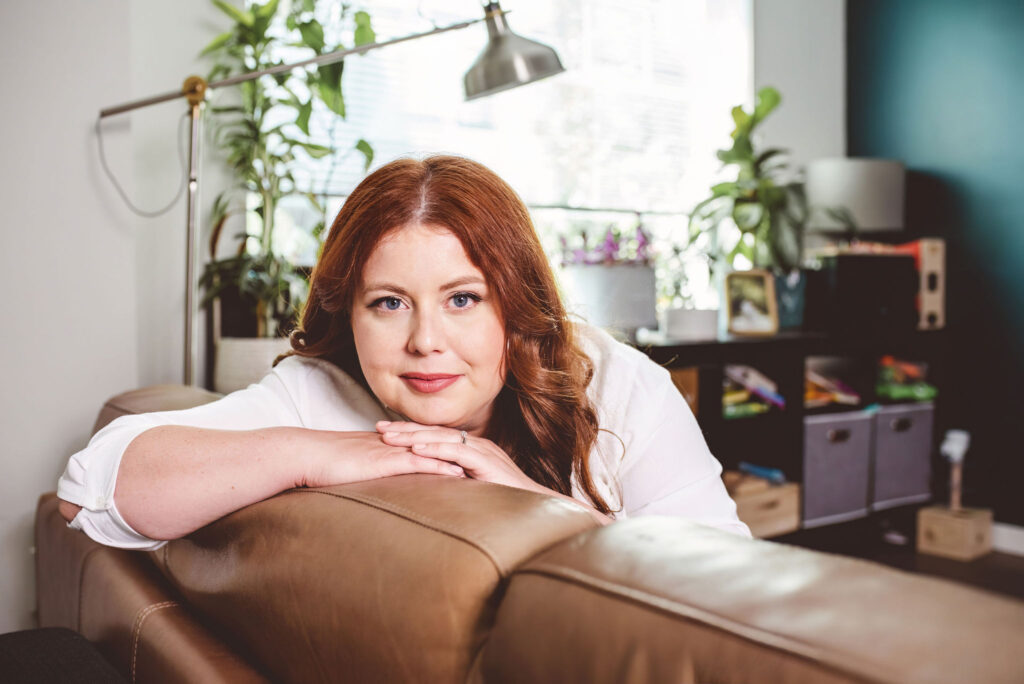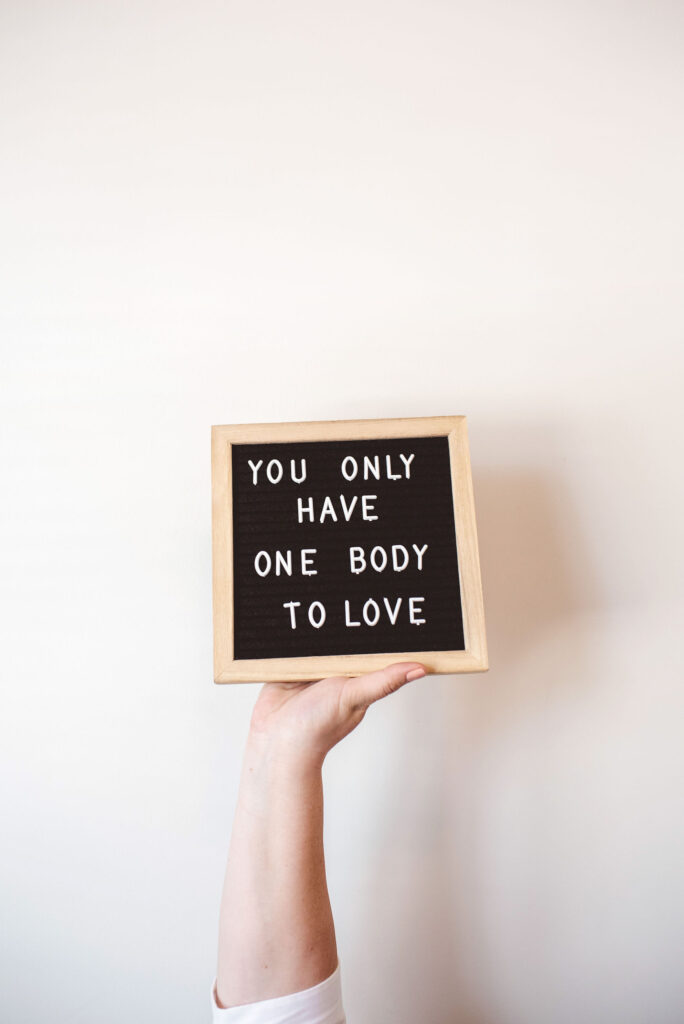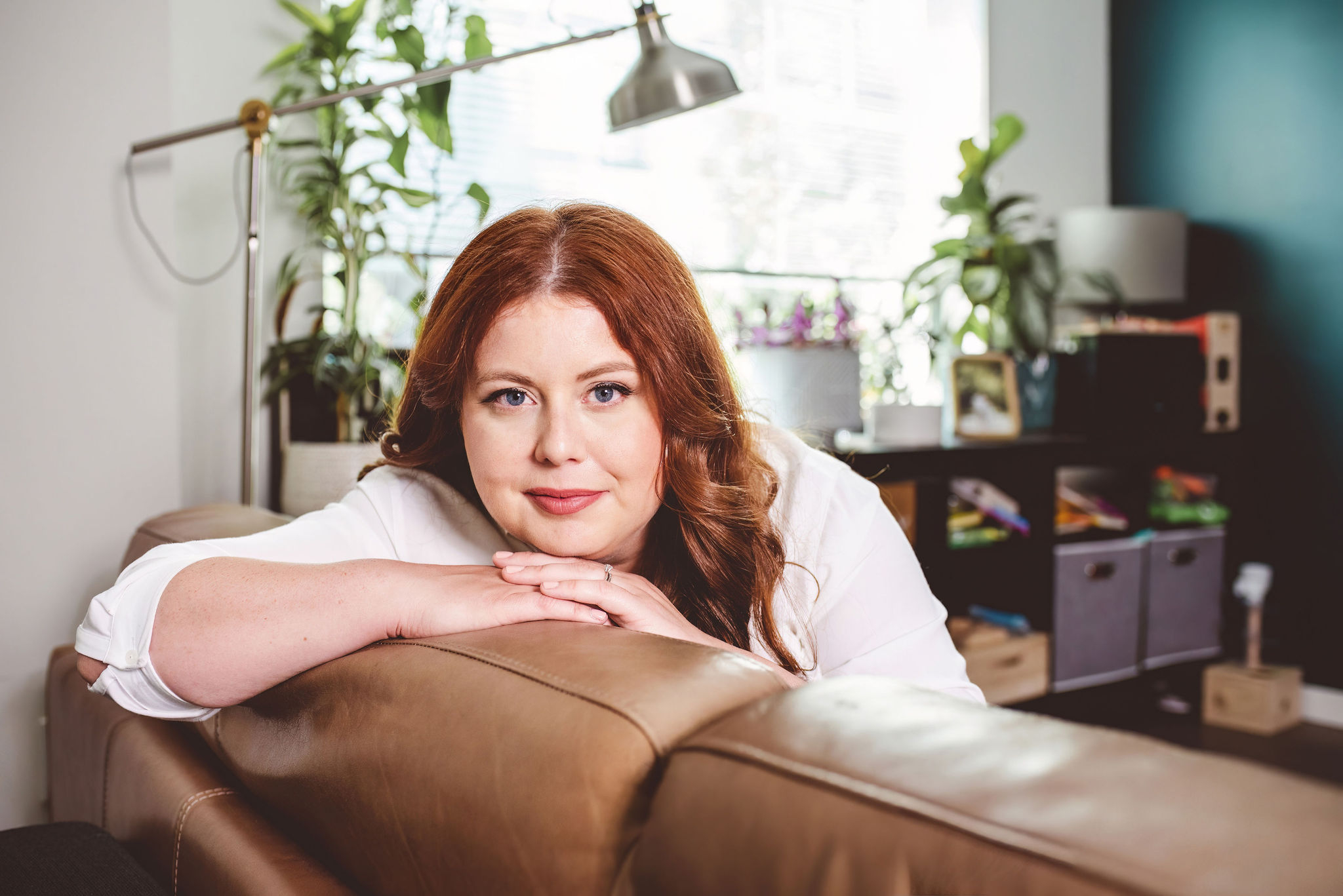Diet culture is sneaky, even for those who have stepped away from traditional dieting. It often hides behind wellness trends, using terms like “clean eating,” “health goals,” or “lifestyle changes” to mask the same old rules about food and body control. You might catch yourself tracking every bite, feeling guilt for eating certain foods, or believing you’ve failed if you can’t stick to the plan perfectly. Though it may sound like self-care, it often leads right back into the diet cycle.
Hi! I’m Meredith MacKenzie, a binge eating therapist, intuitive eating coach, and founder of the One Body To Love program. Diet culture can be sneaky, often hiding in wellness advice that seems harmless but still feeds the pressure to control food and your body. If you’re looking for more daily support and encouragement, join me on Instagram.
In this post, I’ll share how to spot these sneaky messages and take steps toward true food freedom.

What Is Sneaky Diet Culture?
Diet culture teaches that thin bodies are healthier, more valuable, and more worthy. It tells you that controlling your weight and food will lead to happiness and success. You may recognize this from diets, food plans, or weight loss programs.
Sneaky diet culture is harder to spot. Instead of strict rules, it hides behind wellness language like gut health, anti-inflammatory eating, or hormone healing. The words sound gentle, but the message is still about changing your body and staying in control.
Though it pretends to support your health, sneaky diet culture often keeps you trapped in guilt, shame, and fear. You end up following outside rules instead of trusting your body’s own wisdom.
If you’re curious about what a healthy relationship with food can look like in everyday life, I dive deeper into this in my blog, “What a Healthy Relationship with Food Looks Like.”
Common Phrases That Signal Sneaky Diet Culture
Diet culture doesn’t always sound like a diet. It often hides in everyday phrases that seem harmless or healthy, but carry hidden rules about food, appearance, and control.
Here are some common phrases that may signal sneaky diet culture:
- “I’m just trying to eat clean.”
- “I’m doing a reset to feel better.”
- “Guilt-free treats.”
- “I have to earn my food.”
- “I’m being good today.”
- “I need to detox after the weekend.”
- “No excuses. Stick to the plan.”
- “Summer bodies are made in winter.”
- “I just need to get back on track.”
- “Healthy swaps” (used in a way that labels foods as good or bad)
Even when people say these things with good intentions, the underlying message is often that your worth or health depends on controlling your food and body.

When Wellness Becomes Restriction
Wellness can seem like a safer alternative to dieting, but it often becomes another form of control. Instead of counting calories, you might cut out food groups or feel pressure to eat only organic, sugar-free, or “clean” foods. What starts as a goal to feel better can quickly turn into rigid food rules that create stress and anxiety.
Restriction isn’t always about eating less. It can be feeling guilty for eating certain foods or believing you’ve failed when you don’t follow the plan perfectly. This guilt often fuels the very patterns you’re trying to escape, like binge or emotional eating.
True wellness supports both physical and emotional health without fear or shame. If your health choices feel rigid or stressful, it may be a sign that wellness has quietly turned into restriction.
If you’re wondering how the 10 Principles of Intuitive Eating can support your journey toward a healthier relationship with food, I break each one down in my blog post.

The Shame Triggers of Wellness Culture
Wellness culture can feel motivating at first, promising better energy, health, or appearance. But beneath it lies constant pressure to do more. When you don’t feel your best, you may blame yourself for not trying hard enough or following the rules perfectly. What starts as self-care often turns into feeling like you’re always falling short.
Here are some common ways wellness culture can trigger shame:
- Feeling guilty for eating foods labeled as “bad” or “unhealthy.”
- Comparing yourself to people on social media who seem to follow perfect routines.
- Feeling pressure to constantly track food, steps, sleep, or other habits.
- Thinking you are not “disciplined” enough if you cannot follow strict wellness rules.
- Believing that your health struggles are your fault because you are not doing enough.
Shame keeps you stuck in the cycle. Instead of helping you listen to your body, it pushes you to rely on more rules, more control, and more self-blame.
If you’ve struggled with secret eating or shame around food, this episode will help you understand what’s really driving it and how to break free.
Red Flags to Watch For
A key red flag of sneaky diet culture is outsourcing your body’s wisdom to apps, trackers, or devices. Logging meals, counting steps, or monitoring sleep may feel helpful at first, but can pull you away from noticing hunger, fullness, or energy levels. You end up following numbers instead of your body’s signals.
Another sign is feeling anxious when you can’t follow your wellness plan perfectly. Missing a workout or eating off-plan may leave you feeling guilty or like you’ve failed. Wellness should support your life, not control it.
You might also hear food described in moral terms like “good,” “bad,” or “cheat day,” turning eating into something you must earn rather than something that nourishes you. When these patterns show up, it’s helpful to pause and ask whether your choices are rooted in care or in fear and control.

How to Build True Food Freedom in Wellness Spaces
Building food freedom does not mean you have to ignore your health or give up caring for your body. It means creating a relationship with food and wellness that feels peaceful, flexible, and supportive. Instead of following rigid rules or tracking every detail, you start by listening to your body. You learn to notice hunger, fullness, satisfaction, and how different foods make you feel, without judgment.
True food freedom allows space for both nutrition and pleasure. You can enjoy a variety of foods, including those that nourish your body and those that bring you joy. You no longer have to label foods as good or bad. All foods fit, and your worth is not tied to what you eat.
Part of building food freedom is also learning to recognize and challenge the beliefs diet culture has taught you. This might mean unfollowing social media accounts that make you feel like you are not enough, setting boundaries with people who talk about dieting, or working with a professional (hi!) who understands intuitive eating and can walk alongside you.
Support to Help You Get Started
If you’re ready to take the first step toward food freedom but aren’t sure where to start, my free Food Freedom Masterclass can help. In it, I walk you through why willpower isn’t the problem and what it really takes to break free from binge-restrict cycles and find peace with food.
When you trust your body’s signals, honor your emotional needs, and release the pressure to control your body size, you create space for true wellness. Food becomes just one part of your life, not something that controls your mood, self-esteem, or happiness.
And if you’re ready to slow down and feel more connected to your body, grab my free Mindful Eating Log. It’s a simple, judgment-free tool to help you start practicing tuning into your hunger, fullness, and satisfaction.
Breaking Free from Diet Culture for Good
Diet culture often hides in places that promise health and wellness, but still leave you feeling like you are not enough. Even when it sounds different, the message is often the same: control your food, fix your body, and do more.
The good news is that you can step out of this cycle. When you learn to spot sneaky diet culture, trust your body’s signals, and let go of rigid rules, you create space for real freedom. You can care for your health in ways that feel kind, flexible, and sustainable. Food becomes just food again, not something that controls your mood or self-worth.
If you’re feeling tired of navigating sneaky diet culture and want real support as you build food freedom, you don’t have to do it alone. My Intimate Group Education & Coaching program, One Body To Love, offers a safe, supportive space to unlearn diet culture and reconnect with your body. For more personalized support, my 1:1 coaching can help you go even deeper in healing your relationship with food and body. If you’re ready to explore what might be the best fit. Book a free discovery call with me today, I would love to support you!
Looking for more support? Subscribe to my YouTube channel where I share all about binge eating recovery, intuitive eating, and creating food freedom. And tune into my podcast, for honest conversations, personal stories, and practical tools to support your healing journey.
